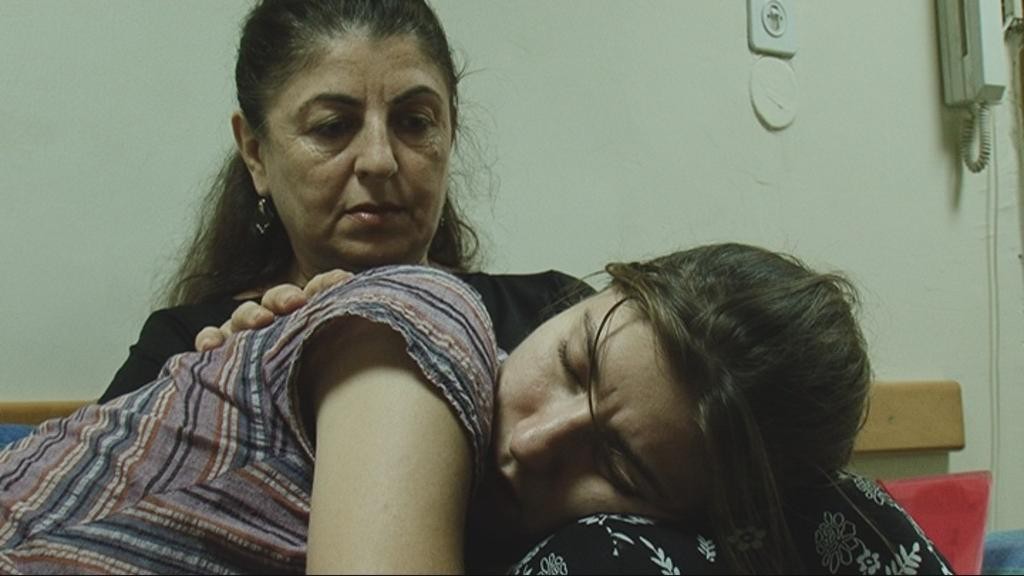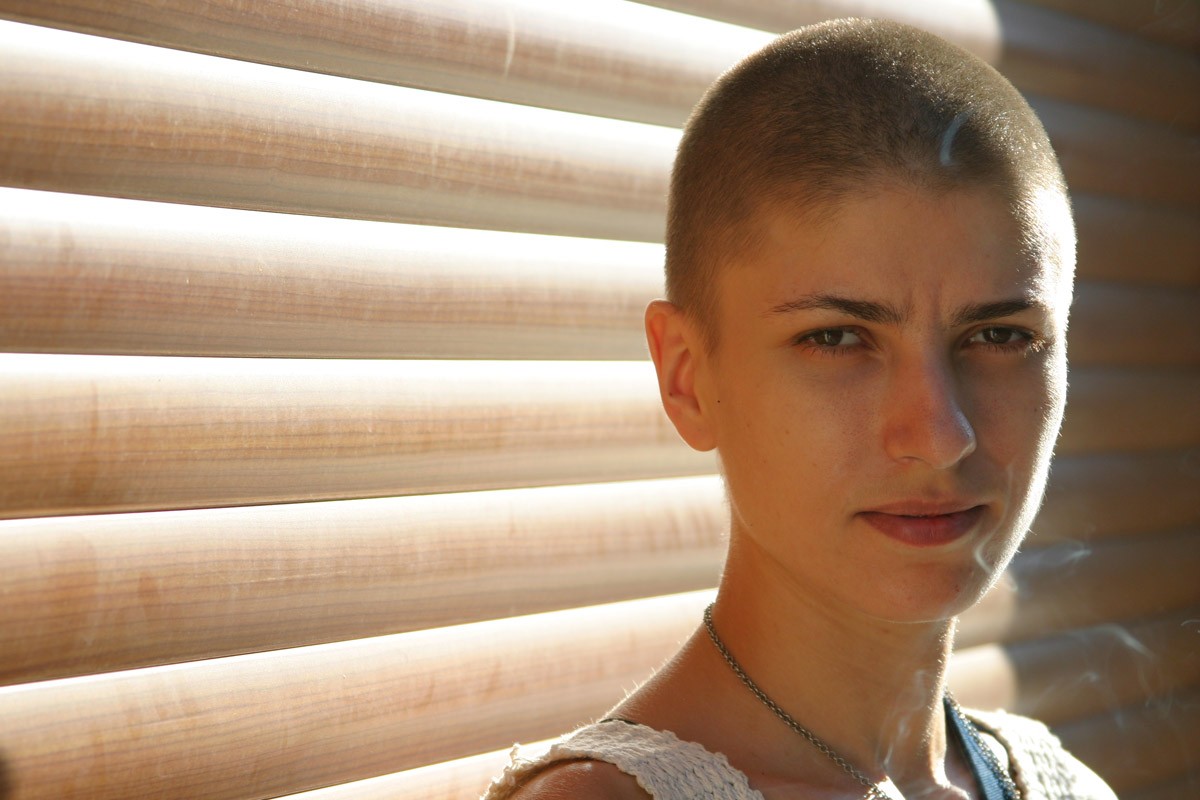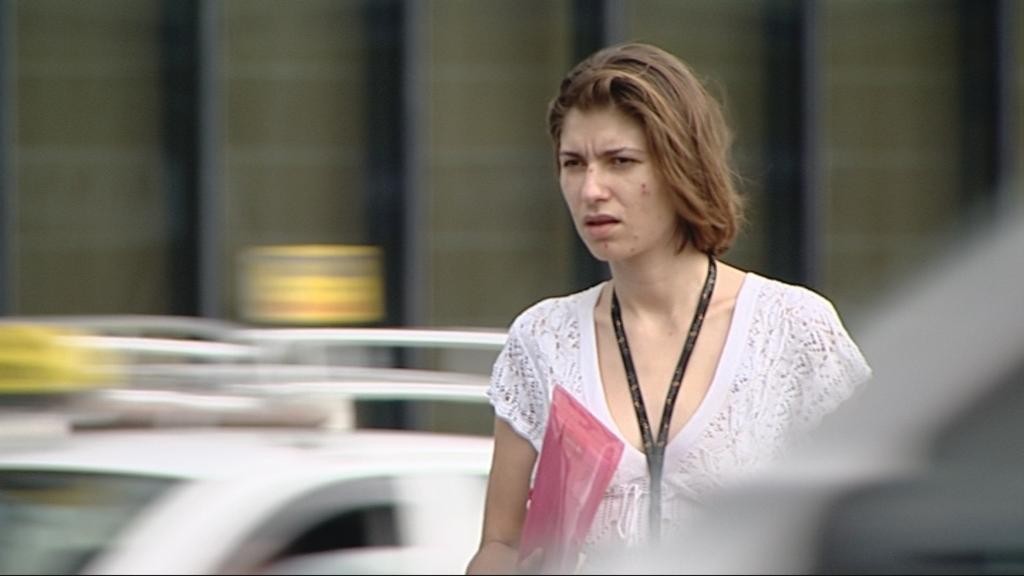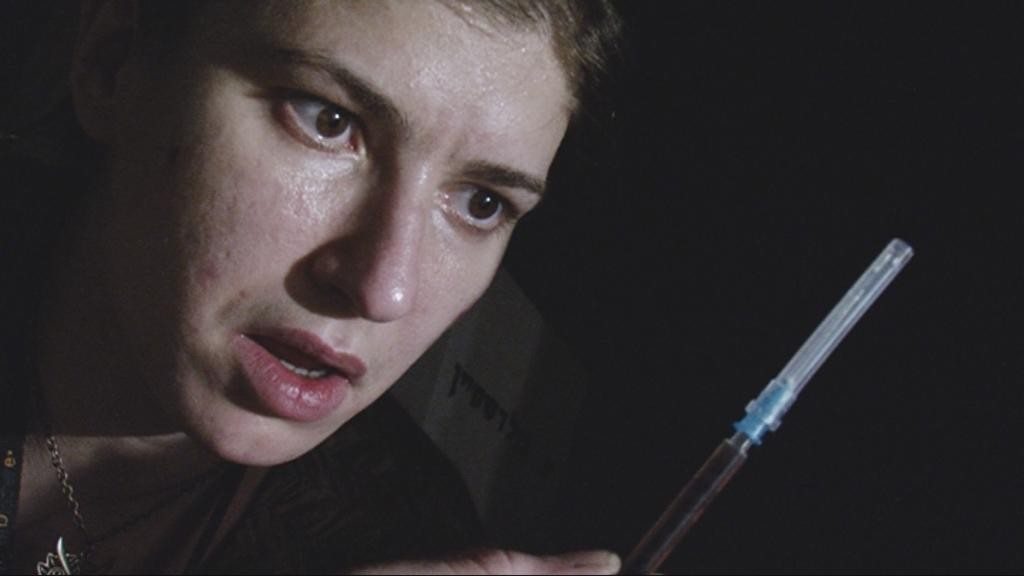The dark corners of growing up as a new immigrant are powerfully explored in this intense documentary. Arriving in Israel from Moldova in the 1990's left Sophia unstable and yearning for more. Her well educated parents are unable to control their only daughter as she rapidly descends from singer in a rock-band to drug addict and to prostitute. Sophia is strong and weak, vulnerable and impervious. Her wrenching journey into darkness is strikingly documented by filmmaker Ohad Itach whose chance meeting with Sophia leads not only to a powerful film, but to the possibility of moving forward.
Synopsis
The dark corners of growing up as a new immigrant are powerfully explored in this intense documentary. Arriving in Israel from Moldova in the 1990's left Sophia unstable and yearning for more. Her well educated parents are unable to control their only daughter as she rapidly descends from singer in a rock-band to drug addict and to prostitute. Sophia is strong and weak, vulnerable and impervious. Her wrenching journey into darkness is strikingly documented by filmmaker Ohad Itach whose chance meeting with Sophia leads not only to a powerful film, but to the possibility of moving forward.
Awards
- Best Documentary Award – Parnu International Film Festival, Estonia, 2012
- Judges Citation for Best Documentary - Syracuse Int'l Film Festival, USA, 2012
- Special Jury Award - Syracuse International Film Festival, USA, 2011
Festivals
- Parnu International Film Festival, Estonia, 2012
- NY Showcase of the Barcelona Human Rights Film Festival, USA, 2012
- Barcelona Human Rights International Film Festival, Spain, 2012
- Transit International Documentary Film Festival, Poland, 2011
Press & Links:
Sophia's Island
Globes, May, 2010
All through this fascinating documentary film, I could not get the tune of an old Israeli ballad about a young woman who wants to be a rock star – only there is no such thing.
Sophia was a nice looking girl from a normal family that moved to Israel from Moldova. Even at an early age Sophia showed non-conformist tendencies, but what happens to many of us at age 16, became extreme with her. She was a lyricist and soloist for a Russian language rock band. But at some point her journey went further and she becomes self-destructive as she gets addicted to drugs and starts working as a prostitute.
This hair-raising film follows her family closely, especially her mother who tries against all odds to save her daughter who often seems ungrateful – it is not always obvious which is stronger; Sophia or her urge for self-destruction.
There are many youngsters who fall on hard times, but not many can articulate the honesty and intelligence that Sophia does.
A Review about Loving
The Marker Café, May 16, 2010, by Shimrit Shimoni
"I like my broken cup" says Sophie's mom about her daughter who is at the center of "Loving Sophia" – a name of some consequence that the filmmaker chose for his documentary about prostitution. Sophia's mom says that she understands that her cup is broken and that it will not be put together again. But that doesn't mean that she doesn't care about her cup and that she will not try and glue it back together. She is not going to throw out her cup. She likes it as it is.
The story of the film follows a drug-addicted prostitute whose move to Israel from Moldova did not go well. Sophia wanted to paint, to sing, to create. We never get the full story of how Sophia became a drug addict expect from learning that she is very stubborn and non-conformist. But towards whom is her obstinacy directed? Does the film mean to point a finger at parents who pressure their daughter too much? Will parents who have no boundaries for their love push their child to a life of drugs? The film seems to have a clear answer – a mother's love with no boundaries can lead to trouble.
Who would believe that a prostitute sleeps at home? That her mother bakes cake and that their home looks clean and inviting? And the prostitute has a cute cat at home?...and perhaps the absurd of all – a mother who drives her daughter to "her corner" and waits for her to finish with a client.
So what do we learn from this film? That a mother loves her daughter at any price. That she fights for her. Protects her. Believes in her. Maybe for a moment she feels like her daughter is too deep into drugs and there is no hope for her. But she never convinces us that she really does believe that. …
The film is not easy to watch. Especially when you see that prostitution can be just like any other job. …the filmmaker chose to show us a film with a challenging beginning, the coping with reality and a happy ending where Sophia achieves a dream. She is back to creating, playing music. She has a new hairdo. She is the former prostitute and drug addict on stage like a brand new cup – or will she always be a broken piece of porcelain?
The Cup Remains Broken
Ha'aretz, May 24th, 2010, by Gili Izikovitch
"Loving Sophia" is a disturbing film. It is disturbing because it does not spare the viewers from real despair nor from moments of grace. The film is disturbing because its plot –if you that's what you call the life of the woman at the center of the film, is so full of such low points that it is easy to forget that this is a documentary film. The film is disturbing because it brings to the forefront dark corners –geographic and emotional, which create an emotional connection in the viewer.
…Sophia's mother is so concerned about her daughter that she drives her to her corner where she works as a prostitute. Her worried eyes follow Sophia. Later she explains that instead of trying to put back together her "broken porcelain cup" – she has learned to accept her as she is.
This is so complicated, melancholy and human.
A Must See
The Split Screen-www.tve.co.il, May 25th, 2010
Filmmaker Ohad Itach's first film tells the story of Sophia, a rock poet who is charismatic and non-conformist. Sophia fell into drugs and prostitution and is now trying to get out of it – under the condition that no one tell her what to do. In the 1990's as an only child she moved from Moldova to Israel with her parents. Her father Arcady is a painter and Paulina an architect who came to Israel with the hope of a better life. Sophia starts a successful Russian language rock band which tours the country. At the same time Sophia discovers heroine. Her addiction leads to the band's dissolving. She leaves home, looses friends – looses any meaning in life, expect the next fix. In order to finance her addiction she sells her body to men in the dark corners of the central bus station in Tel Aviv. It is at this point that filmmaker Ohad Itach starts to film her which leads to surprising developments in her life. For one, Sophia's mother Paulina realizes that there is a chance of connecting to her daughter anew. She tries to accept her and learn more about her world – even if that means driving her to "work" at one of the corners in the bus station, or to her drug dealer. With the encouragement of the film, Sophia decides to make a change in her life and chooses to become clean. She goes back to writing and joins another rock band.
A must see.
Festivals
- Parnu International Film Festival, Estonia, 2012
- NY Showcase of the Barcelona Human Rights Film Festival, USA, 2012
- Barcelona Human Rights International Film Festival, Spain, 2012
- Transit International Documentary Film Festival, Poland, 2011
- Verzio International Human Rights Film Festival, Hungary, 2011
- DOCSDF 6th. International Documentary Film Festival of Mexico City, 2011
- Syracuse International Film Festival, USA, 2011
- Munich Int'l Documentary Film, Germany, 2011
- Detective International Film & TV Programs, Moscow, Russia, 2011
- Krakow International Film Festival, Poland, 2011
- MEDIAWAVE Intl' Film Festival, Hungary, 2011
- Female Eye International Film Festival, Toronto, 2011
- Jewish Motifs Film Festival, Poland, 2011
- ISRATIM Film Festival, France, 2011
- Urban TV Festival, Madrid, 2011
- DocAviv Galil, Israel, 2010
- International Mediterranean Film Festival, Bosnia Herzegovina, 2010
- DocAviv International Film Festival, Israel 2010
Educational
- Stanford University
- Duke university
- UCLA
- University of Florida
- University of Pennsylvania
- Harvard University
Awards
- Best Documentary Award – Parnu International Film Festival, Estonia, 2012
- Judges Citation for Best Documentary - Syracuse Int'l Film Festival, USA, 2012
- Special Jury Award - Syracuse International Film Festival, USA, 2011
- Best Feature Length Documentary - Tranzyt International Film Festival, Poland, 2011
- Best Documentary Award - Mediawave International Film Festival, Hungary 2011
- Special Jury Mention - Detective Int'l Film Festival, Moscow, 2011
- Audience Award - Bosnia Herzegovina International Mediterranean Film Festival, 2010
- Young & Promising Filmmaker - DocAviv Festival 2010
- Editing Award - DocAviv, 2010






